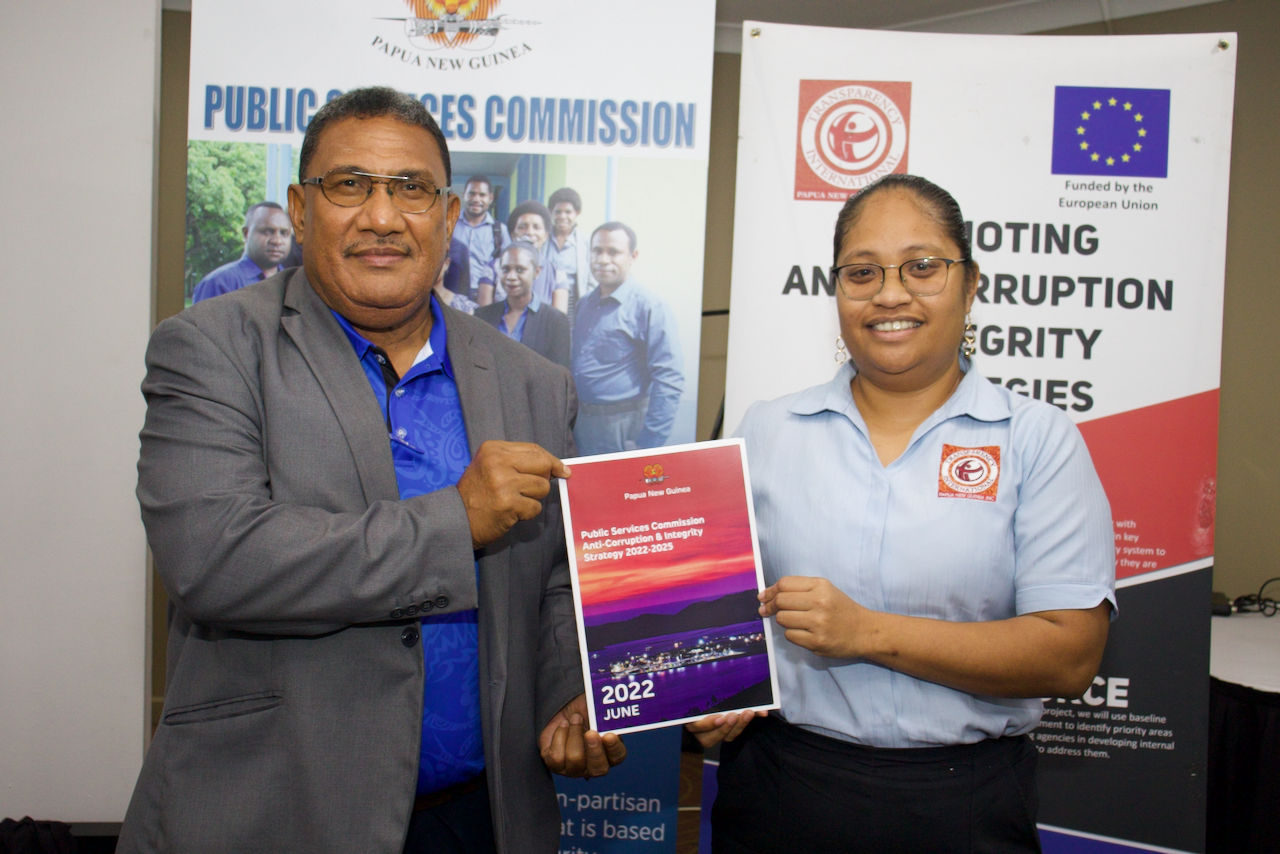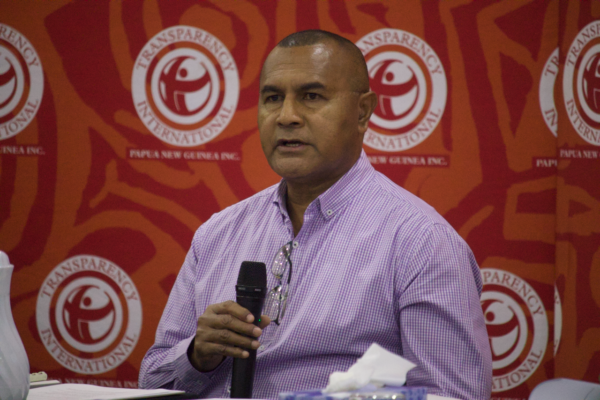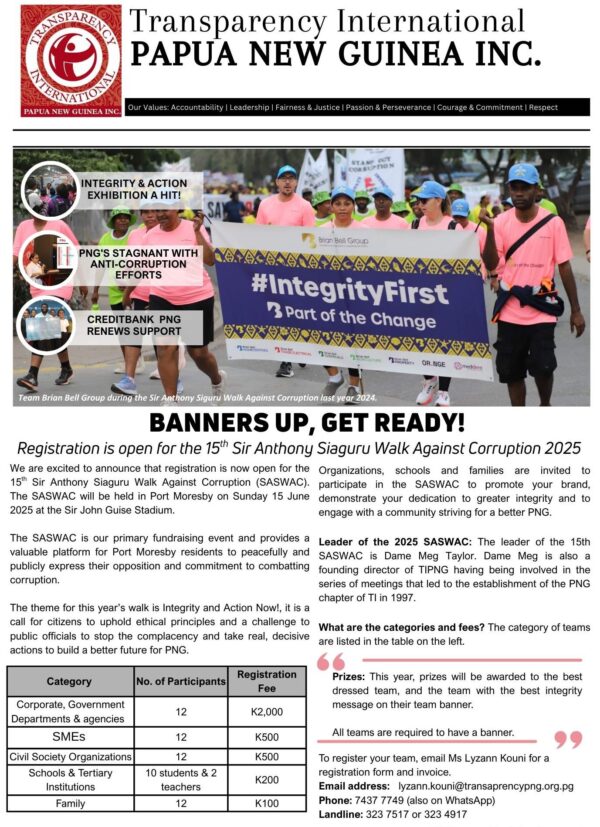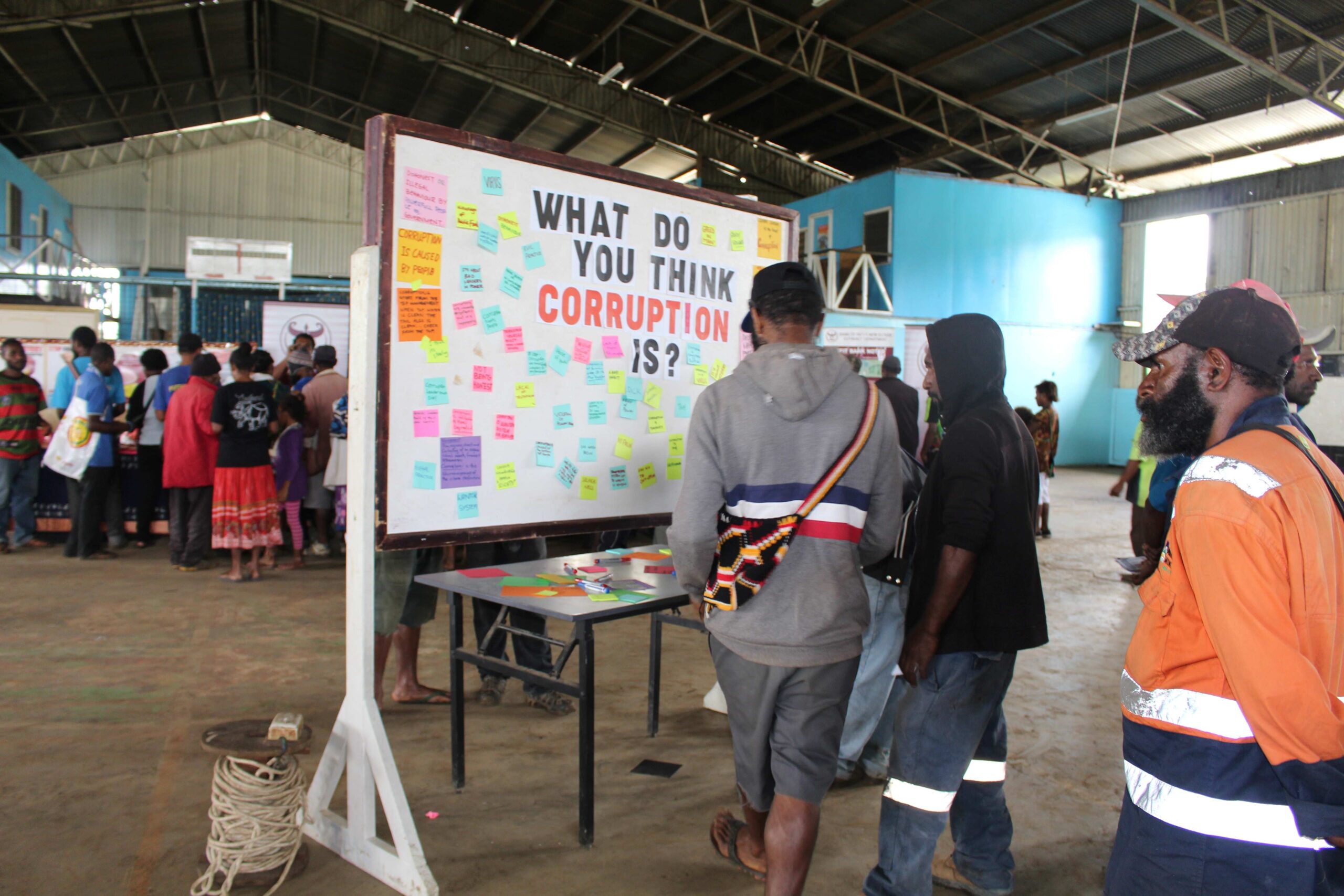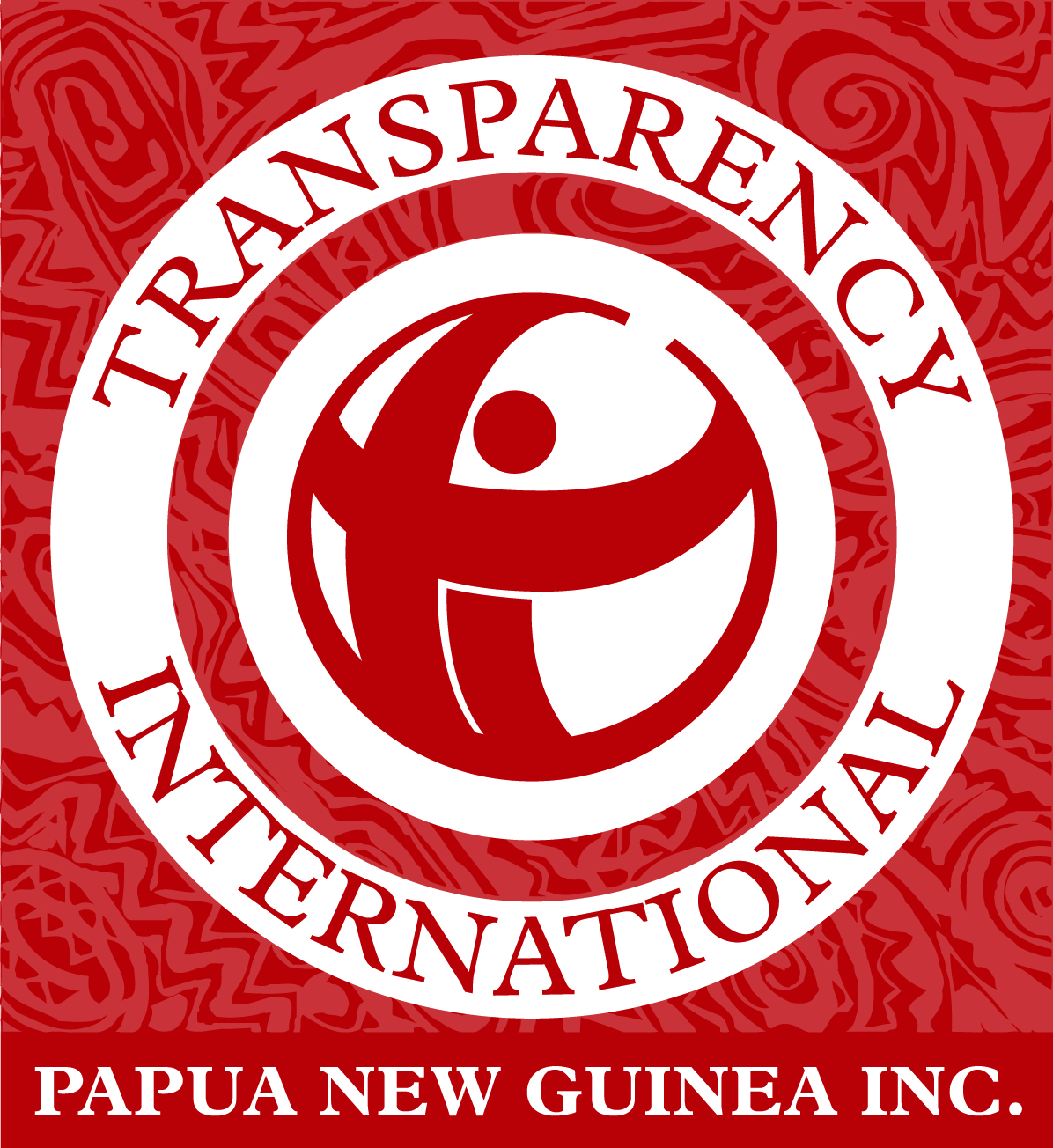The Public Services Commission (PSC) was commended by Transparency International PNG (TIPNG) for developing and launching their PSC Anti-Corruption & Integrity Strategy 2022-2025 in Port Moresby, on Friday 28th February. The agency-level Strategy to prevent corruption and promote integrity was launched by the Chairman of the PSC, Mr. Apeo Fuata Sione. During the launch, Mr. Sione shared that the objective of building capacity and maintaining effective people management systems.
“On this occasion we celebrate the dedication and effort of the Commission in developing your first agency-level anti-corruption strategy. This commitment speaks to the importance the Commission places on ensuring that it is fully equipped to fulfil its mandated functions. As Chairman Sione rightfully states in the foreword, the strategy we are launching today is home grown and specifically tailored for the Public Services Commission,” said TIPNG Chief Executive Officer Ms. Arianne Kassman in her remarks at the launch.
“We at TIPNG fully support the key objectives of the strategy, notably the fostering of an anti-corruption culture in PSC. The PSC in the Strategy identifies that it has a moral obligation to perform its role free of corruption, and this ethos should be shared across all state agencies in PNG,” said Ms. Kassman.
The four key objectives of the Public Services Commission Anti-Corruption and Integrity Strategy 2022-2025 are as follows:
- Promoting and Strengthening Honest Leadership in PSC
- Ensuring Compliance and Accountability in PSC
- Fostering an Anti-Corruption Culture in PSC
- Building Capacity and Maintaining effective People Management Systems
This Strategy was delivered by TIPNG, with funding support from the European Union, through the Promoting Anti-Corruption & Integrity Strategies (PAIS) Project. Technical support for the development of the strategy was provided by Square Circle, a Brisbane-based firm focused on International Development. The overall objective of TIPNG’s PAIS project is to strengthen public trust in our state agencies. This can only be achieved in collaboration with Government, Civil Society, Media and the Private Sector.

